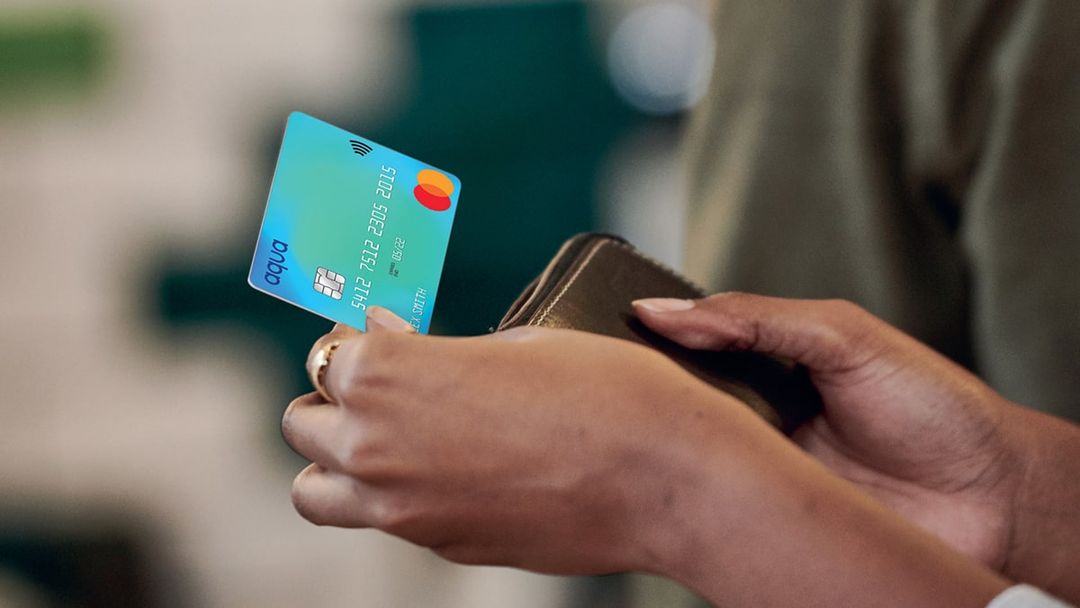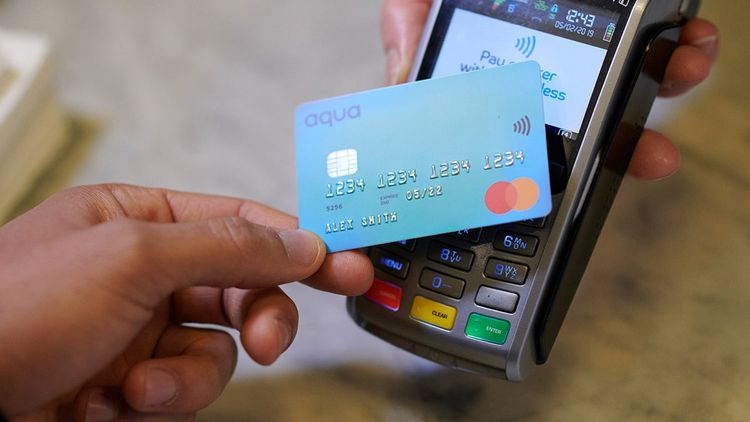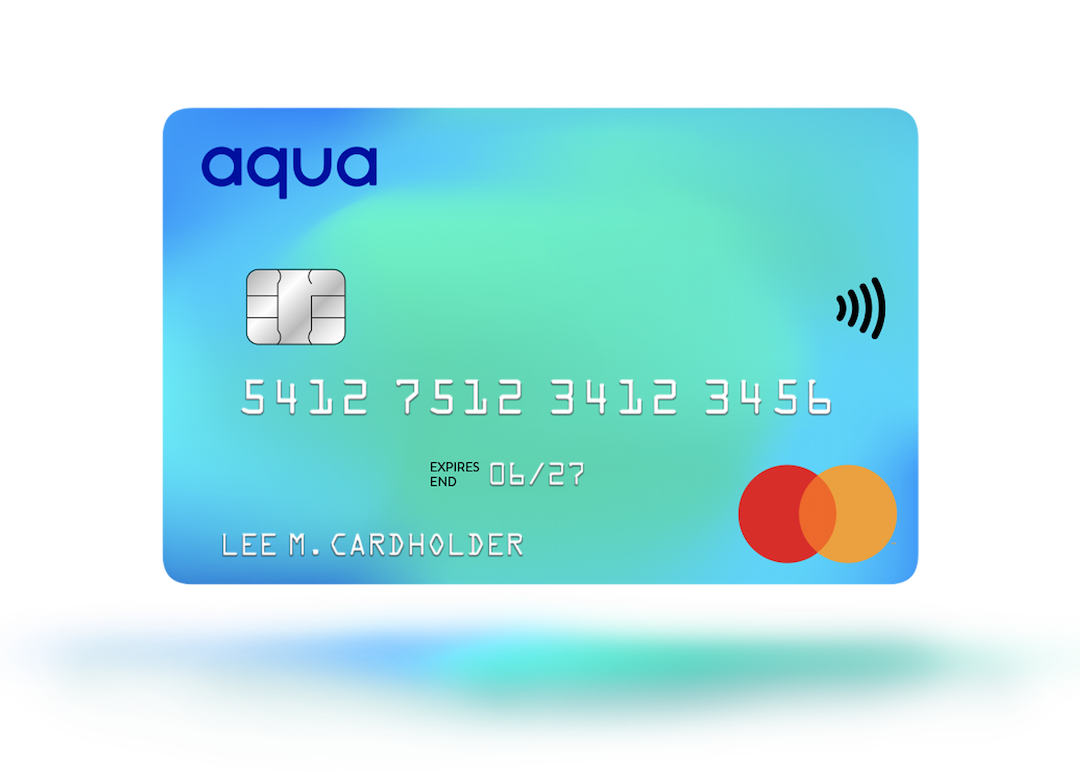In this article
Preventing credit card fraud
Get tips on how you can prevent credit card fraud and keep your card safe.

There are many different types of credit card fraud, most of which are preventable if you take care of your card and make sure you're staying safe online. As a credit card holder, you have rights, but it's always better to be safe than sorry, taking all the precautions needed to protect yourself from credit card fraud. In this guide, we share tips on how you can prevent credit card fraud and keep yourself safe both on and offline.
What is credit card fraud?
Card fraud relates to any fraud or theft that specifically involves a credit card. The card is used by the fraudster to pay for goods or services for themselves, or to steal money from the cardholder's account.
Types of credit card fraud
While the end result of credit card fraud is the same – to steal the credit (money) on your account – the first step a scammer will take is to access your personal details or get hold of your card.
These are some of the most common ways this can happen and how to prevent them:
- 'Skimming' or a 'skimmed' credit card refers to when a card reader or card machine is used to copy or clone the card and make duplicates.
Always keep hold of your card when using a card reader to pay – if you notice anything unusual about the card reader, don't use it. The same applies to using an ATM.
- If your card is lost or stolen it may be used without your knowledge. Purchase amounts will be limited by the contactless payment spending cap or if you've opted in to Mastercard SecureCode, you'll be protected online.
If you misplace your card and can't find it, call your bank straight away and either get it blocked or cancelled and a new one sent out.
- If you're not careful with your online security, your data could be captured by scammers online. Personal information such as your name, card number, address, or date of birth can then be sold and used online or over the phone, where your card doesn't need to be physically present.
If you think your personal data has been stolen contact your bank or credit card provider immediately to cancel the card.
- Once a fraudster has your personal data, they can then impersonate you online, and do things like fraudulently opening new lines of credit in your name, without you knowing until it's too late.
Keep all your personal data secure, online and offline. Make sure that any confidential printed documents are destroyed or shredded before throwing them away, and don't leave any passwords or personal data 'lying around' on your computer where it can be easily found.
How to detect credit card fraud
Detecting and protecting yourself from credit card fraud may seem like an exhausting full-time surveillance task, but with the right tools you can keep an eye on your accounts each day in no time. Spotting fraud sooner than later can save a lot of stress in the long run.
- Check your statements on your banking app every couple of days. If there's any activity you don't recognise, contact your card provider immediately to discuss it further.
- If your credit card is unexpectedly declined, call your card provider to find out why. It may be that they've spotted unusual activity on your card or that fraudulent payments have taken you close to your spending limit. It could also be that you've simply used your card somewhere new, or abroad, but again, it's better to be safe than sorry.
- Check your credit score every month, like Experian – this will help you identify any fraudulent credit activity, such as scammers opening credit cards without your knowledge.
- Check to see if your card provider offers the ability to text you or alert you whenever your card is used.
Preventing credit card fraud
How do you know if you're keeping your cards and personal details safe? Here's some tips to get you started:
Protecting your pin and passwords
Your pin or password is often the only thing that keeps your money or account safe, so protecting them is a priority.
- Always create a strong password or pin.
- Don't use your birthday or anniversary as your pin or password.
- Use a mixture of letters, numbers, capital letters and special characters (!,?,#).
- Change your password or pin on a regular basis.
It may sound obvious but make sure you use different pins for different cards. That way, if you lose your wallet and all your cards are stolen, scammers don't have access to all of your accounts with one pin.
- Never share your pin or password.
Remember, your bank or credit card provider will never ask for your pin or password in its entirety over the phone or through email. If someone calls or emails asking for your pin, it's likely they're a scammer. Hang up the phone or delete the email.
Avoiding scams and phishing
If you often make purchases online or use internet banking, you need to avoid scams or phishing emails.
Stay safe by following these tips:
- Always keep your computer and mobile phone software updated – this will protect you from any new security risks.
- Avoid using public Wi-Fi – the connections aren't always encrypted leaving you at risk of being hacked. If you are using public Wi-Fi, don't make any transactions or log in to online banking or other websites containing your sensitive information.
- Look for the padlock symbol to the left of the website address in your browser to check the websites you're using are secure. You can also check if the web address in the URL bar begins with 'https' the 's' lets you know that the website is likely to be safe and secure.
- Be cautious of unsolicited calls or emails from your bank that ask for any secure data, like your pin, password or address. If in doubt don't click on any links in the email or offer to call the company back using a confirmed telephone number on their official website.
Have a look at our guide for staying safe online for a more in depth information.
Staying alert
Sometimes we can put ourselves at risk of credit card fraud without even realising, so make sure that you're vigilant and protect your identity:
- Take care of old credit cards by making sure that the chip and magnetic strip are destroyed before you throw them away.
- Never let your credit card leave your sight – or preferably your hand – when you're using it in person. This way you know it hasn't been 'skimmed' or tampered with.
- Keep an eye on your post.
- If you receive something you aren't expecting, call the company to inquire why you've received it, and check your online accounts. This will help you identify any lines of credit that may have been taken out without your knowledge.
- If you haven't received sensitive documents that you are expecting, contact the service provider to see if or when it was sent out. This will help you make sure no one is taking your post to commit fraud.
- If you move, make sure that you redirect any post to your new address until you have updated all your address details with the relevant parties – such as your bank and the DVLA.
- If you're throwing away sensitive documents, make sure all the important information is destroyed (i.e. shredded) before you put them in the bin.
- Make sure you log out of any website you use before leaving a computer. This is especially important when using a public or shared computer.
Keeping your card safe
Online isn't the only place you can protect yourself from credit card fraud. Always keeping your credit cards safe is your best bet at protecting yourself in the physical world. If you're leaving your cards at home, make sure they're kept in a secure place where they won't be easily found. Just make sure you remember where they are!
Protecting your card in public
If you're out and about there are a few steps you can take to keep your card safe:
- Make sure you know where your cards are at all times – keep your wallet secured in your bag, not poking out of any pockets.
- Avoid keeping them in easily accessible pockets on your clothing or bag to make it easy for pickpockets.
- Keep at least one of your cards separate from your wallet or card-holder (i.e. at home). That way, if your wallet is lost or stolen, you'll still have access to some funds.
Identity theft
The steps in this guide will not just keep you safe from credit card fraud, but also identity fraud. Although they may seem similar, credit card fraud is focused on people using your credit card details whereas identity theft refers to the theft of more personal data such as your date of birth, your address and bank account details.
This is often the first step to credit card fraud, and allows the fraudster to impersonate you, allowing them to take out other accounts or cars, or even register a vehicle or a business in your name.
Suspect you're a victim of credit card fraud?
If you suspect your Aqua credit card has been used for fraud, get in touch with our customer service team by calling 0333 220 2691 (UK) and +44 113 244 8986 (Abroad).
Failure to make payments on time or to stay within your credit limit means that you will pay additional charges and may make obtaining credit in the future more expensive and difficult.
Contributors

Victoria Smith
Victoria is an editor at Aqua.

Vanessa Stewart
Vanessa is an editor at Aqua.
You might also like
Slide 1 of 3
Types of credit
Find out about some of the most common forms of credit and work out which is right for you.
Victoria Smith

Advantages of using a credit card
From spreading costs to building credit history, learn the benefits of credit cards when used responsibly.
Vanessa Stewart

Staying safe online
Find out what you can do to protect your security when browsing the web.
Vanessa Stewart
The smart way to build better credit
Aqua is the credit card that gives you the power to improve your credit score
